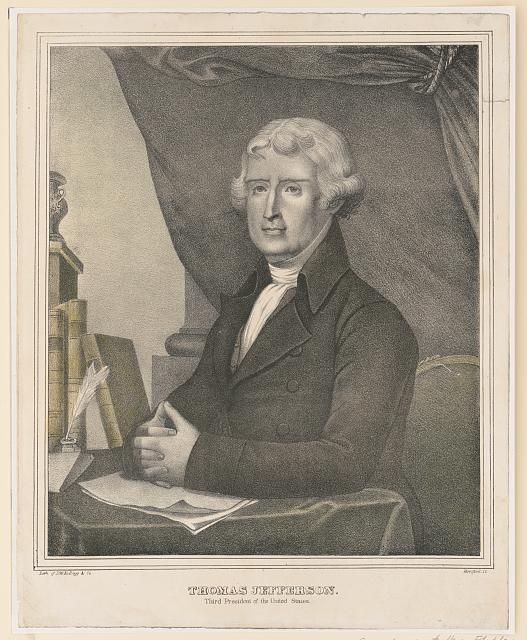Thomas Jefferson is widely remembered as one of the Founding Fathers of the United States, celebrated for his pivotal role in drafting the Declaration of Independence, his presidency, and his contributions to American political philosophy. However, beyond his political endeavors, Jefferson’s influence extended deeply into the realms of literature and arts, shaping the cultural landscape of early America and leaving a lasting imprint on subsequent generations of writers, artists, and thinkers. This article explores Thomas Jefferson’s multifaceted impact on American literature and arts, examining how his ideas, values, and actions reverberated through creative expression.
The Enlightenment Influence:
At the heart of Jefferson’s intellectual framework lay Enlightenment principles, which emphasized reason, individual liberty, and the pursuit of knowledge. Immersed in the philosophical currents of his time, Jefferson embraced the belief in the power of human intellect to advance society and championed the ideals of progress and enlightenment. His commitment to rational inquiry and intellectual freedom resonated deeply with writers and artists seeking to challenge tradition and explore new frontiers of thought.
Jefferson’s Literary Legacy:
Thomas Jefferson himself was a prolific writer, penning thousands of letters, essays, and political treatises throughout his lifetime. His writing style was characterized by clarity, elegance, and a profound respect for language. Jefferson’s most enduring literary achievement, however, remains the Declaration of Independence, a masterpiece of rhetoric that crystallized the aspirations of a fledgling nation and articulated the principles of democracy and self-governance. The stirring language of the Declaration, with its invocation of “unalienable rights” and the “pursuit of happiness,” has inspired countless poets, novelists, and orators, becoming a touchstone of American literary heritage.
Envisioning America:
As an ardent proponent of westward expansion and the cultivation of a national identity rooted in agrarian values, Jefferson played a pivotal role in shaping the American imagination. His vision of an expansive, agrarian republic, populated by virtuous yeoman farmers, captured the imagination of writers such as Washington Irving and James Fenimore Cooper, who drew inspiration from Jefferson’s idealized vision of rural America in their works. Through their novels and essays, these writers sought to capture the spirit of the American frontier and explore the tension between civilization and wilderness, echoing Jefferson’s belief in the transformative power of the land.
The Architecture of Democracy:
In addition to his literary pursuits, Thomas Jefferson was also a devoted patron of the arts and a passionate advocate for architectural innovation. His architectural masterpiece, Monticello, stands as a testament to his eclectic tastes and creative vision. Inspired by classical design principles and the architectural traditions of ancient Rome, Monticello embodies Jefferson’s belief in the harmonious integration of art and nature. Its neoclassical façade and ingenious interior layout reflect Jefferson’s commitment to symmetry, proportion, and aesthetic beauty, setting a standard for architectural excellence that would influence generations of American architects.
Jefferson’s Legacy Today:
Although Thomas Jefferson lived in a different era, his influence continues to resonate in contemporary American literature and arts. His enduring commitment to freedom of expression, intellectual inquiry, and cultural diversity serves as a beacon for writers, artists, and activists striving to uphold the principles of democracy and human dignity. From the stirring speeches of civil rights leaders to the poignant poetry of modern-day lyricists, Jefferson’s legacy remains an indelible part of America’s cultural fabric, reminding us of the enduring power of ideas to shape the course of history.
Thomas Jefferson’s influence on American literature and arts is profound and far-reaching, spanning centuries and transcending disciplinary boundaries. As a statesman, thinker, and patron of the arts, Jefferson’s legacy continues to inspire writers, artists, and intellectuals to explore the rich tapestry of American experience and to envision new possibilities for the future. By celebrating Jefferson’s contributions to literature and arts, we honor not only the man himself but also the enduring spirit of creativity, curiosity, and imagination that defines the American identity.
